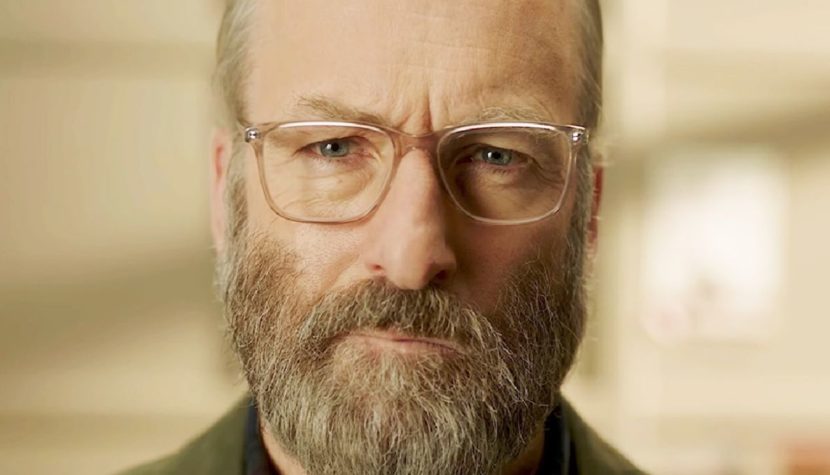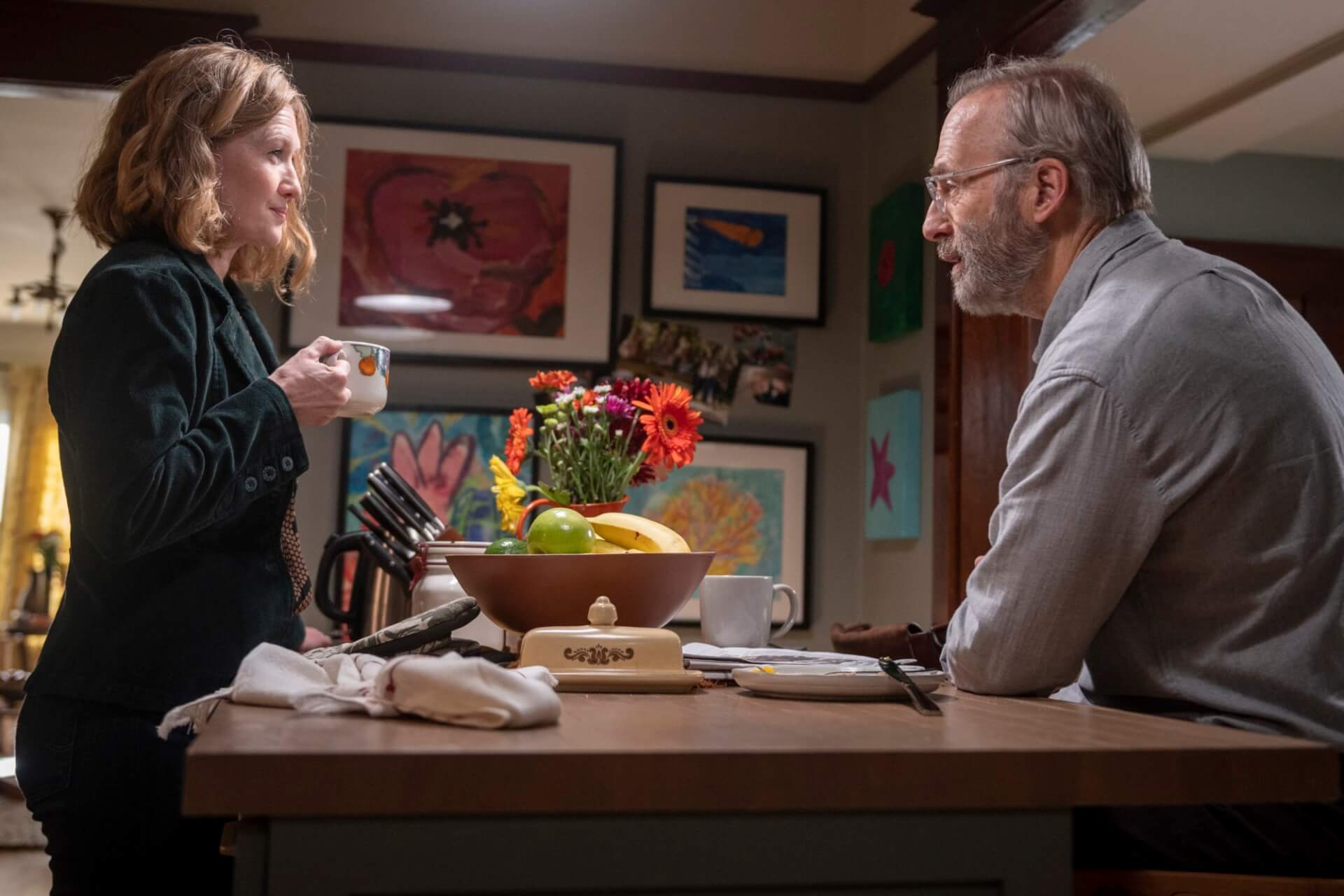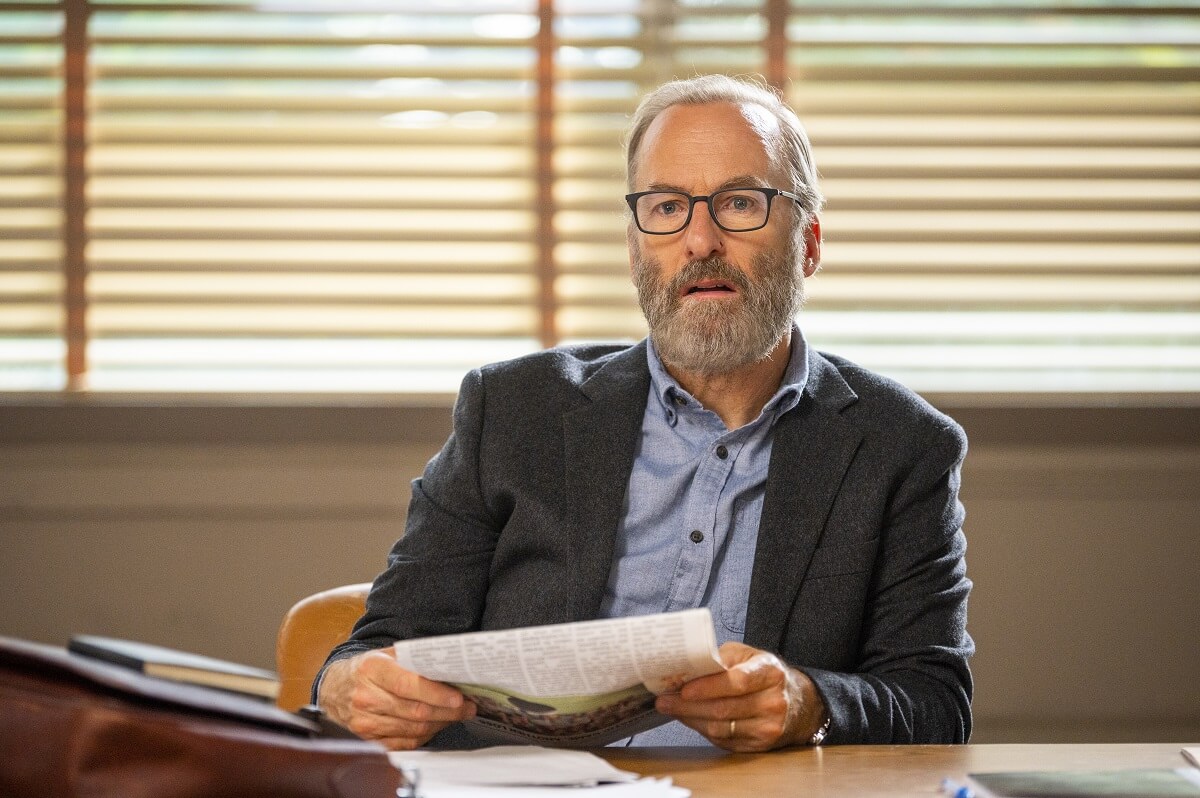LUCKY HANK. A tale of an ill-tempered scholar

In Lucky Hank, the school is bloodshed among its employees, human relationships are, apparently, built on many lies and everyone is underpaid. In other words, there is nothing fictitious about its portrayal of everyday life from the scholars’ perspective. Based on the book, Straight Man, written by Richard Russo, the series weaves its modern story about Henry Deveraux (called “Hank”), a teacher in one of the American colleges. Hank hates his life so much (some sort of a midlife crisis) that, with his sordid behaviour, decides to annoy anyone who will get in his way.
The show strives to be another first-class, subtle drama, even though it is a long-distance (and less-gifted) relative to Apple’s superb Shrinking, which is scintillating with its awe-inspiring themes and congenial humour. Lucky Hank is a typical, once-serene, once-jaded TV show with an equal amount of gleaming and tedious moments. Odenkirk and the cast ensemble playing stereotypical academics (not a star wattage, but a group of solid TV actors with cogent performances) elevate this low-key and somewhat colourless drama. It is even refreshing to see Oscar Nunez, The Office’s memorable thespian, in a role varying not only in his importance (Nunez plays the college’s principal), but also in its nuanced manner; Nunez’s performance is comedic and strict at the same time.
Their college represents a field of lecturers at loggerheads, where everyone struggles for their personal incomes and financial premiums. It fits the present-time narration when scholars in the UK and the US struggle for their wages and dig pits under each other. We meet Hank and his colleagues at apparent war: he doesn’t respect them and they cannot even stand being in his presence. But work relationships are always malleable when it comes to finding a common enemy. Once they learn that their university’s future might be endangered, such a situation will be galvanizing for both parties. Regardless of their previous animosities, they will have to (finally!) learn how to work together to keep their jobs.

With six seasons of Better Call Saul in your mind, it’s challenging to acknowledge Odenkirk as a bespectacled, grey-bearded and unbearable English professor. Yet, after a few episodes, we can’t help but notice Bob Odenkirk’s successful exile of a Saul-Goodman-not-so-good-persona. His rueful performance is based on Hank’s constant need to make other people’s lives miserable and how his frolics, constantly, backfire. Although a scholar, Bob’s hero is a zany figure. Rather than supporting and developing his students with his acumen (which he, apparently, has), he intentionally misguides them. Sadly, Hank even stopped caring about his children – they act like he is not in their house anymore (a truth in its own way). The reason for the hero’s refractory behaviour is his failure as a writer. After publishing his first novel many years ago, he somehow lost his career-driven path. By devoting himself to a family – at this time, he became a father – he, more or less consciously, decided to choose love over success. Now Hank blames his closest relatives for his own failures.
It sounds like Hank is a flighty, proverbial “jerk” who acts like a penitent for his past choices. There is a fine line between his hubris and inner goodness: there is still a strong will in him to make everything alright. Hank’s navel-gazing and braggadocio slowly lead to his personal downfall. Always ready to throw a few quips, always happy to abase his colleagues: those little things give him joy, while Hank’s main source of happiness (built around his family house) is, inexorably, sweeping away. Hank is, genuinely, lucky, yet his approach strikingly differs from the so-called objective truth. For Hank, the concept of “luck” is rather a social construct: seemingly, it is only a matter of time before his relatives will turn their backs on him. It is visible with the naked eye that his wife, Lily (Mireille Enos), can no longer stand her husband’s act. Hank became a hellcat and this is not a guy she once wedded to. However, we cannot forget that Odenkirk’s character is still a sentient person after all. But if he will wake up early enough to alter his attitude is a much different conundrum.

From episode to episode, there is a sense of incremental development in the characters’ writing (also, the actors fully commit to their meaty roles), even if the narrative’s premise sorely lacks surprise or enticing tension. In one sense, Lucky Hank is like a repository of various, compelling ideas, but it truly commits only to a few of them. It makes you both invested in the school’s troubles and, sometimes, slightly inattentive.
If you’re prepared to nurture these contrasting feelings equally, Lucky Hank is a series which will readily indulge you with its puny (however, worthy) themes and a bunch of dad jokes, uttered by a guy who once became the most famous lawyer in the 21st century.

